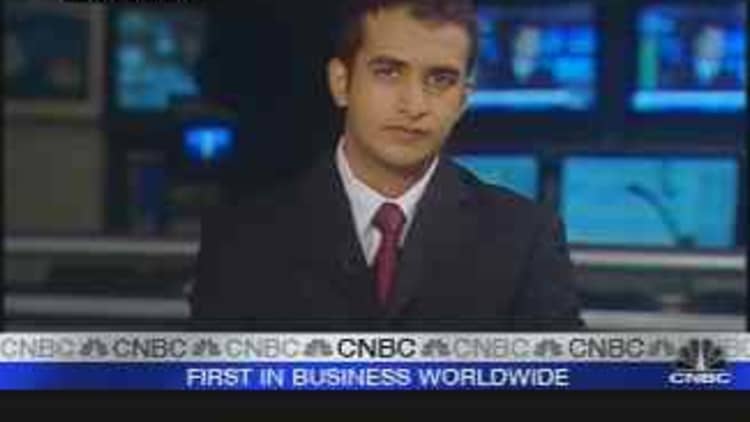The dollar hit a record low against the euro Tuesday, weighed down by the ailing U.S. subprime mortgage market and narrowing interest rate differentials between the United States and Europe.
The dollar also fell to a 26-year low against sterling, and slumped nearly 1% against the yen, as investors cut back on "carry trade" transactions funded by borrowing in the Japanese currency.

"The dollar's fall has become a risk aversion move. The subprime story does not seem to be over," said Stephen Butler, director of foreign exchange trading at Scotia Capital in Toronto.
On Tuesday, Standard & Poor's said it may cut 612 residential mortgage-backed securities backed by U.S. subprime loans, affecting $12 billion in debt. The news sent U.S. stocks reeling and bond yields falling.
"We've seen a little pullback in carry trades. Stocks are off, while bond yields are down so that's weighing on the U.S. dollar right now," he added.
In carry trades, investors borrow in low-yielding currency such as the yen to buy higher-yielding currencies such as the dollar.
Euro Hits Peak vs. Dollar
The euro rose to $1.3736, a record high, according to electronic trading platform EBS, before trading back down, but was up against the dollar on the day.
Sterling climbed to around $2.0246 against the dollar, its highest in 26 years according to Reuters data.
Against the yen , the dollar fell to 122.16 on track for its steepest fall since late March.
The euro also fell against the yen.
The high-yielding Australian and New Zealand dollars dropped against the yen respectively.
Analysts also said that the dollar's dwindling interest rate advantage over other debt in other currencies has hurt the greenback as well.
Benchmark U.S. rates have held at 5.25% for over a year, dampening the dollar's appeal to global investors when other major central banks such as the European Central Bank are tightening monetary policy.
The ECB is expected to hike rates again in September to 4.25%, with some economists betting on a follow-up quarter-point hike to 4.5% by the end of the year.
The Bank of Canada earlier on Tuesday raised interest rates to 4.50%, while the Bank of Japan is on a tightening path as well, although at a more gradual pace.
"It's still an interest rate differential game," said Gregory Salvaggio, a vice president for trading at Tempus Consulting in Washington.
"The ECB is going to hike rates at least two times more this year and U.S. bond yields are falling, giving no incentive for large global investors to hold dollars," he added.

